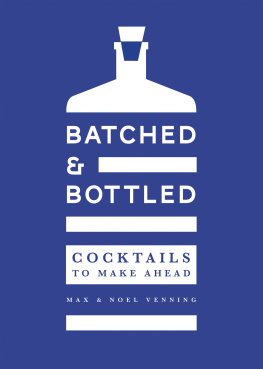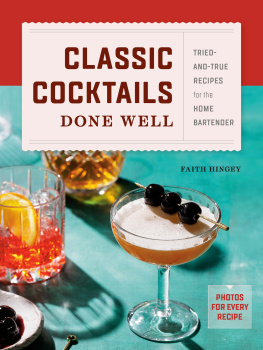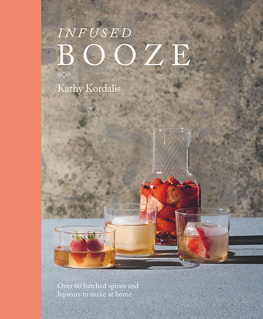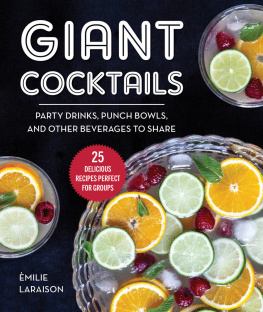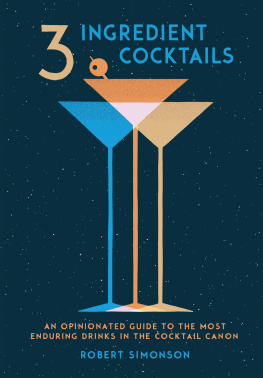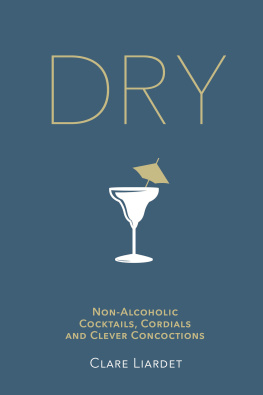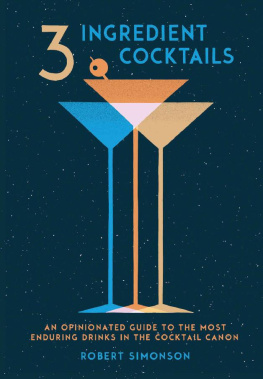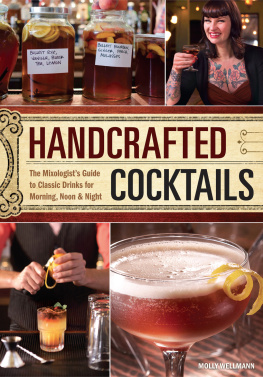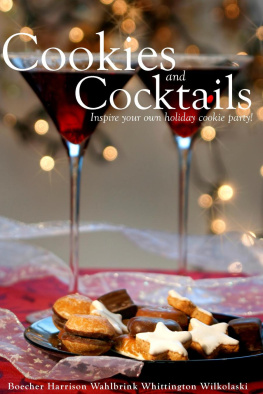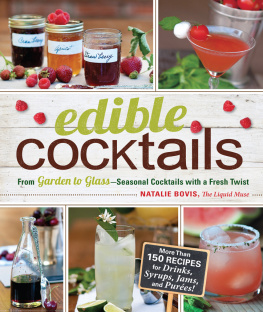CONTENTS
Why batch and bottle cocktails? Because its hands down the best way to plan ahead, to reduce work at times when you want to be relaxing, and to have something delicious waiting for you at the very moment youd like it. Preparing a cocktail in advance just makes sense: when the time comes that you actually want to be drinking or entertaining, it can be as straightforward as grabbing a few glasses and pouring the chilled liquid from the bottle.
But batching and bottling isnt just about practicality. It allows for some cocktail flair. Our , for example, is best served from a champagne bottle with a neatly written label and a bit of theatre from the server (i.e. you), your guests will feel like theyre somewhere far more glamourous than your living room. At our bar, Three Sheets in Dalston, London, we think that any preparation that can be done ahead is for the benefit of the guests. And the same applies to you at home. As a good friend once put it: You wouldnt start cooking a dinner for a party when your guests arrive.
Youll notice weve divided the book into chapters based on seasons. Thats because we believe drinking, just like eating, is best if you follow nature, and match what youre making to whats going on outside. Just as a light, spritzy drink is more appealing in the sunshine, so a rich, comforting drink feels like just what we want when the nights draw in. Some of the recipes weve shared are ideal for a long, lazy afternoon in the park with a picnic (like the refreshing and fragrant ).
We also want to introduce you to interesting cocktail-making techniques like carbonating, fat-washing, clarification and fermentation, but weve stayed away from using expensive scientific-type equipment, as we know that only a very small proportion of people have access to it. In fact, many of the recipes are as easy as combining a few ingredients in a bottle (like the , or get into one of the recipes that involves fermentation: its fun and super-addictive, but you may, like us, end up with cupboards full of resting fruit and bubbling liquids, which doesnt always go down too well with the other halves.
, you can do it to any spirit you like, from rum to gin.
Throughout the book youll notice a few recipes from some of our close friends from around the world. We really believe that the best way to learn and progress is through conversation and collaboration. Weve been lucky to cross paths with some of the brightest and most determined people in our industry, and we couldnt resist the chance to get them involved (although when we tried their drinks, we were a little worried the guys might show us up). Massive thanks to Marcis, Nathan, Hyacinthe, Luke and Alex for their contributions. They are at the top of their games, and they know that working with seasonal ingredients and batching is the way forward for anyone who makes drinks.
We both hope you enjoy the drinks in this book. The recipes are a truly tasty starting point from which you can go on to experiment. And hopefully the stunning photography is an inspiration too. We wanted to show the drinks honestly, so that when you make them at home they look the same as ours: not over-stylised, no fake ice.
I think the biggest reason for us to put our ideas onto paper was to dispel the myth that you need a bunch of expensive equipment and years of experience to make top-quality drinks. With a little knowledge and basic kitchen items, you can produce stunning cocktails at home that are really easy to serve.
ABOUT US
We are brothers. Were Northern lads who grew up in Manchester, which has definitely had an impact on our style of hospitality. We are firm believers that everyone should be welcome at our bar and thats why we enjoyed opening it in east London, with its rich history and character. Both of us slipped into bartending as a consequence of going to university. Max used bartending to help with finances while studying in Edinburgh. I got into bartending when university didnt pan out as expected. We also both worked at the same local boozer in Manchester to earn some extra cash. It was a real salt-of-the-earth place: no frills, lots of spills and a fair few bellyaches.
Well introduce each other: its probably the only time well ever say anything nice about each other in print, so I guess this ones for you, Mum.
NOELby Max
He started his career, properly, in Manchester, after messing around for a few years with uni. Noel has a strong grasp on whats important in a bar: keeping people happy, and looking at the bigger picture; music, lighting and mood is what makes people come back. Hopefully this book shows that drinks can be pretty easy to get right, but creating a good atmosphere is something you need a talent for, and he gets it, in his own grumpy way.
MAXby Noel
Max started working in bars in Edinburgh at a hotel called Ricks. He then moved back to Manchester after finishing university and continued his journey into the cocktail world at some of the citys best bars. He was one of the top bartenders who worked at the legendary Socio Rehab. He then moved to London to work at the inimitable 69 Colebrooke Row under industry great Tony Conigliaro. As Ive started to learn, hes always trying to sod off for a few days on a work trip: hes had opportunities to travel pretty extensively, experiencing the global drinks and food industry, which was valuable when we were trying to figure out what to do with our own bar.
It was early 2016 when Max called me with the idea of opening our own place in London. I said yes almost instantly. It moved forward rapidly lets just say we begged and borrowed to scrape together the money and six months later Three Sheets was open. And now we wouldnt change a thing.
Weve tried to keep the equipment used as everyday as possible, and only listed the more unusual items. We havent included household basics such as cling film (plastic wrap), pans and knives. Everyone has those, right?
BLENDER A top-loading jug is better than a stick blender, as it processes more evenly.
COFFEE FILTERS These are essential when straining off ingredients in various recipes. You might find smaller, one-cup-sized filters in the supermarket, but they dont hold much liquid at a time the bigger ones are better. Your local specialist coffee shop will probably stock them. For more on this, see .
COOKING THERMOMETER Essential for when youre heating liquids to infuse flavours. Alcohol boils at 78C/172F, so keeping under that is key to making sure the recipes work. Digital thermometers are easier to read and more accurate.
DIGITAL SCALES Probably our most-used bit of kit when prepping ingredients in the bar. We would recommend buying one that can weigh up to 3kg/6lbs with one decimal place.
ELECTRIC JUICER Centrifugal juicers are great for extracting juice from fruits such as apples and other ingredients such as ginger.
EMPTY GLASS BOTTLES For storing your cocktails, there is nothing better. There are shops where you can buy them empty, but we would always recommend reusing bottles. Once youve finished a bottle of wine, gin or other spirit, keep the cap or cork and soak off the label. Before you fill it with your delicious homemade cocktail, its vital to sterilise it, if the cocktail contains fruit juice or another fresh ingredient. Do this with a sterilising agent bought from a chemist or homebrew supplier, or with heat: wash the bottles in hot, soapy water and bake in a preheated oven (140C/280F/Gas Mark 1) until dry. Bottled cocktails and cordials should always be sealed.

